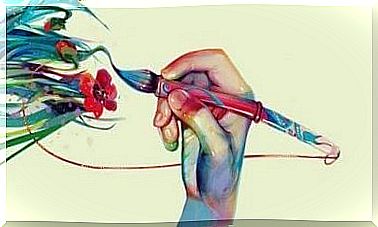Kufungisisa: The Danger Of Thinking Too Much

In Zimbabwe, local tribes have a term that sums up most modern mental health problems perfectly – kufungisisa. The literal translation of this term is to think too much, whether it concerns daily problems or traumatic events in the past.
Among Shona, one of the tribes in the region, the tendency to think too much is seen as something that is not good for health. It is a behavior that can lead to both mental and physical problems. For example, the natives believe that thinking too much can lead to both depression and anxiety, in addition to causing other ailments such as burnout and headaches.
But is there any truth in the concept of kufungisisa? Can thinking too much actually hurt us? You will receive an answer soon.
Kufungisisa – when thinking too much hurts us
Throughout history, people have always been proud of their ability to reflect. Unlike animals, which follow instinct, we can actually think and reason about what is happening to us. But this ability is really a double-edged sword.
Other species, for example, do not have the same ability to feel bad as we do. And, while it may seem like a contradiction in terms, it is precisely our ability to reflect that can cause us all kinds of trouble.
The Shona tribe is not the only group that has pointed out this problem with the kufungisisa concept. It is actually the opposite. Modern psychology is based on precisely this way of thinking. Since the advent of cognitive science, studies of the brain have shown us that what makes us feel bad is not what happens to us, but how we think about what has happened and how we react to it.
Albert Ellis, the man behind rational emotional behavior therapy, was very clear on this. What affects us is not what actually happens, but what the brain tells us has happened. So how is it possible that our own brains make us sad or angry?

To understand the role of the brain
Humans have evolved in an extremely inhospitable environment. Even though we are living in abundance right now, our brains believe that we are still living in prehistoric times. This is why many of our mental functions have become redundant today.
One of them is the way we process information. Because our ancestors were surrounded by dangers, it was imperative that they notice all the negative and scary aspects and situations in their daily lives. Had they not been able to do so, they would not have been able to defend themselves from wild animals, solve problems with food shortages or seek refuge when necessary.
Because of how evolution works, our brains continue to function in the same way to this day. We focus on anything that can go wrong and because of that we tend to be negative.
The Shona tribe knew when they created kufungisisa that seeing the world as something inhospitable made us feel bad. Today, thinking too much only causes us to worry, waste time and fill ourselves with anxiety.

How to stop thinking too much
The role of the perception of how you feel is so important that virtually all psychological therapy focuses on precisely changing how you see the world yourself. There are basically two ways to do this:
- Change what we think about what happens to us.
- Live in the present.
Let’s look at the two ways:
1. To change the way we talk to ourselves
The first response to anxiety that comes because we think too much is simply to change what we say to ourselves. According to ideas such as stoism, what happens to us is almost always totally unimportant. Modern cognitive psychology uses this idea to teach us to assess the meaning of things in a larger perspective.
According to this mindset, there is almost nothing that can happen to us that is really that awful. If we stick to that thought, much of our anxiety will simply go away. Worrying will not make sense as we will think we will make it, no matter what happens.
2. Living in the present
Morning philosophies such as Buddhism and modern trends such as mindfulness are based on the same basic principle: Suffering is a thought. This is the same concept that gave us kufungisisa. Those who follow these ways of thinking seek to calm their own minds.
Of course, this is not as simple as it sounds, but it can be achieved through meditation and yoga. Research has shown that keeping our brains quiet has a very positive effect on both our physical and mental health.
The idea that kufungisisa or thinking too much can harm us has been shared by almost all cultures throughout history. But with a little effort, we can all learn to avoid this problem. If you think you need help, do not hesitate to contact a professional. With their help, the path to mental freedom will be much easier to walk.









